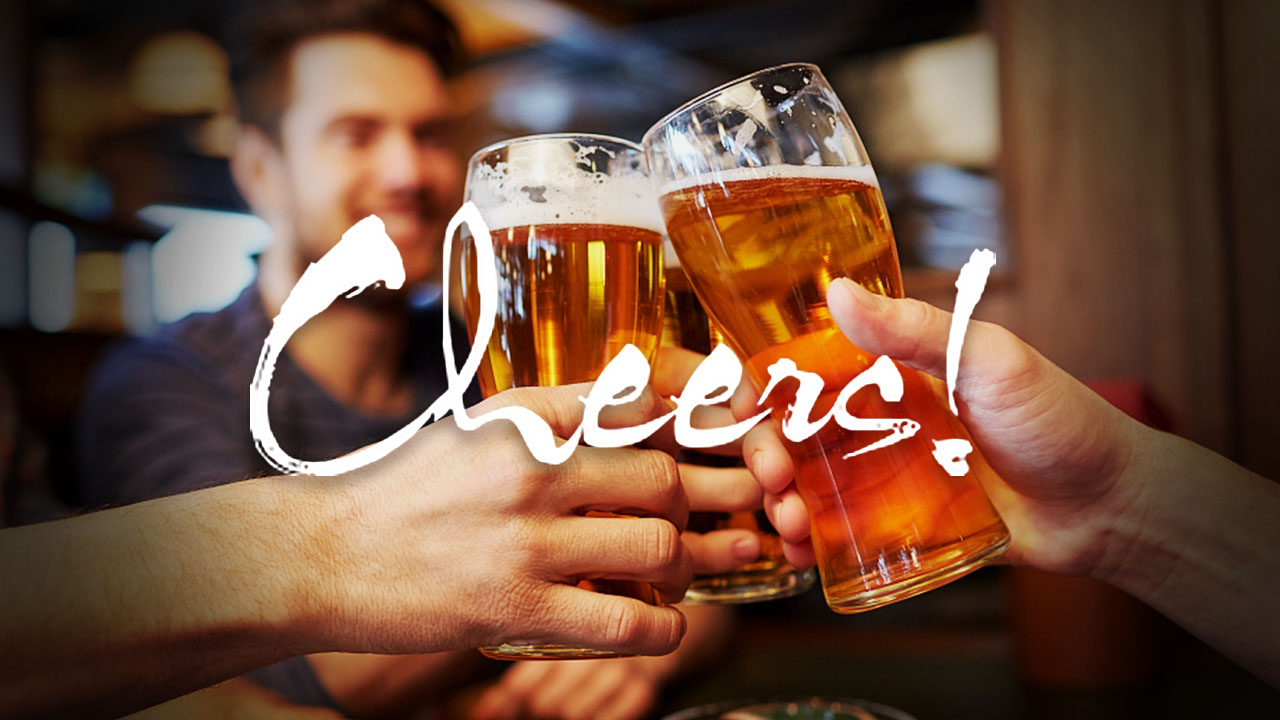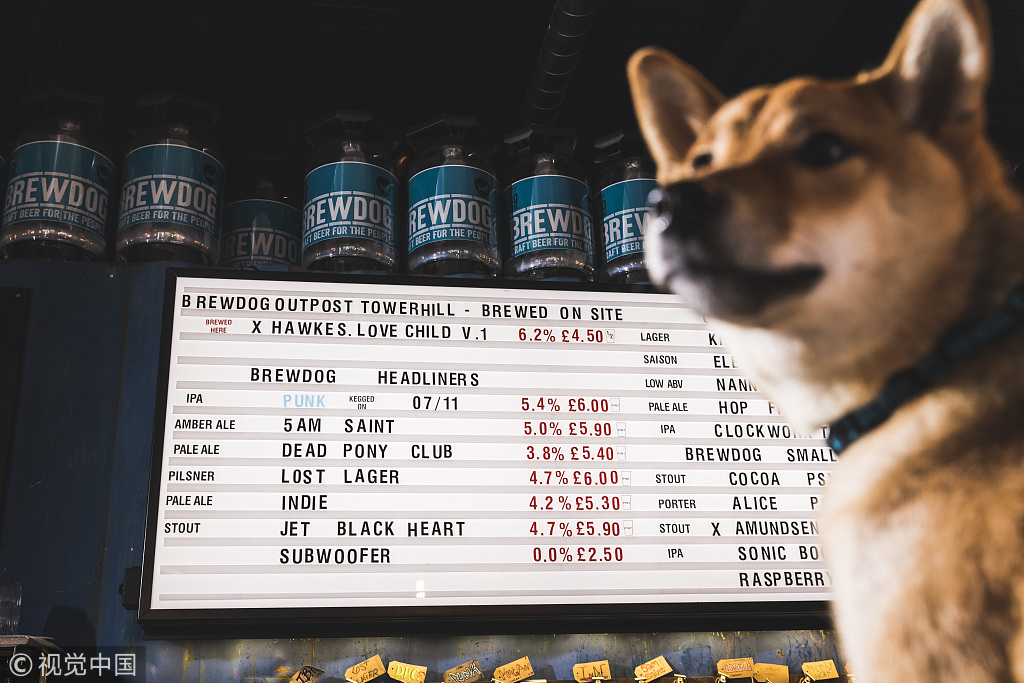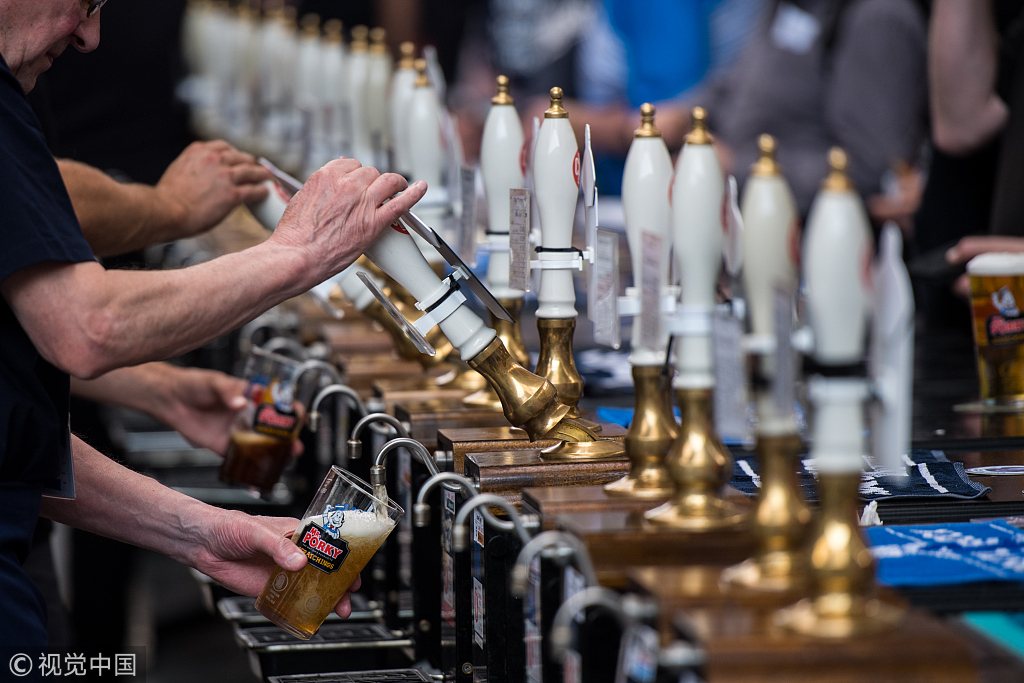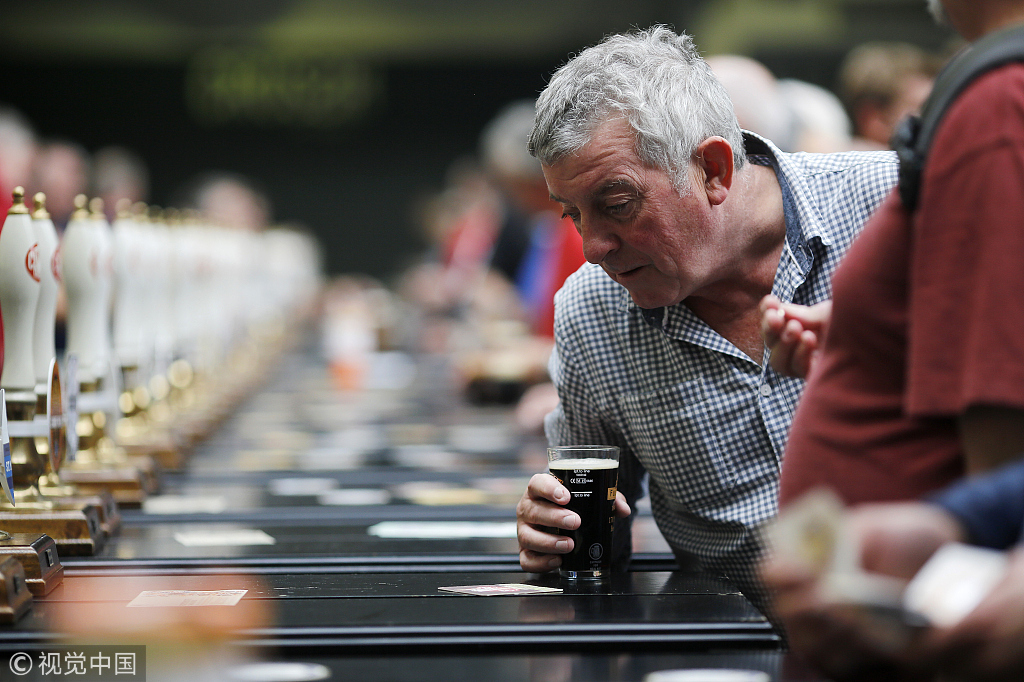
Lifestyle
10:29, 22-Mar-2019
Brexit: Its consequences for the British beer industry
By Ye Qing

Britain's image of a beer nation does not fall short of Germany's regarding consumption levels. According to statistics of previous years, Britain makes the top 20 of the world's biggest beer drinkers. In particular, British pub culture is one of the most prominent manifestations of the British beer sector. People can imagine how important beer is to the British.
However, as Britain's voted to leave the European Union (EU), many complex consequences have emerged, including a substantial impact on the beer sector.
British beer, a serious business
Britain's trading relationship with its European neighbors has historically been bumpy, as have the country's raw materials used for beer brewing. Britain is a highly urbanized island, but it is well known that the water quality in Britain is too hard for brewing beers that are very sensitive to water chemistry, such as the lager.
However, the British had their way. They grew their own barley, yeast, and hops to build their own supply system for English beer. They came up with the English Bitter, the aromatic IPA, the English Porter, the Stout, and the Barley Wine, to name a few, all very different from beer on the continent.

BrewDog has launched its first dog-friendly craft beer, Subwoofer IPA, available across its network of UK bars and online shops. /VCG Photo
BrewDog has launched its first dog-friendly craft beer, Subwoofer IPA, available across its network of UK bars and online shops. /VCG Photo
British-style beers have not reached Europe for centuries. To this day, the variety of British beer available beyond the island remains limited, although many types and styles of beer have been popularized, including Belgian, German and some British beers.
Meanwhile, Britain could not completely isolate itself from global beer trends. When the lager beer gained worldwide popularity in the 19th and 20th centuries, it did not leave out Great Britain.
But the fact that the British drink lagers does not imply that they will not restrict and boycott foreign beer. For example, the "Campaign for Real Ale," launched in the 1970s, was organized for the specific purpose of supporting traditional British beer.
For a foreign beer brand to come to Britain, there are various restrictions and regulations. When a specific Dutch beer brand enters the British market, for instance, it is forced to reduce the alcohol content in its beer, while some British domestic stouts and barley wines can easily exceed alcohol levels of about ten percent by volume.

Bar staff serves beer during the Great British Beer Festival at the Olympia Exhibition Centre on August 10, 2018, in London, England. /VCG Photo
Bar staff serves beer during the Great British Beer Festival at the Olympia Exhibition Centre on August 10, 2018, in London, England. /VCG Photo
At the same time, British culture, including British beer, was heavily exported through diplomacy and overseas territories, the famous Indian Pale Ale (IPA) being an export to India, the Imperial Russian Stout being an export to Russia. But there are very few examples of British beer exporting to European countries to become a monopoly.
Exports on the rise, but brewers unsettled
Brexit was a surprise and came as a shock to many who thought Britain would never vote to leave the EU and the free trading advantages that came with being a member state.
But the pound's fall has unexpectedly made British goods such as beer more attractive and led to a surge in food and drink exports.
The report UK Food & Drink Exports in 2018 found that exports of goods had risen by 12 percent year-on-year, with alcoholic drinks exports seeing the most growth at 16 percent.
As many beer lovers understand, to successfully brew any type or style of beer, getting the right ingredients and supplies means sourcing from all over the world.

A visitor inspects his pint of stout beer at the Great British Beer Festival in London, UK, August 11, 2015. /VCG Photo
A visitor inspects his pint of stout beer at the Great British Beer Festival in London, UK, August 11, 2015. /VCG Photo
Sasha Kocho-Williams, a former New Yorker who runs a microbrewery with her husband in London, told NBC News that their fermenters came from Italy since this country made premium stainless steel for the wine industry.
All of their beer bottles came from Italy while the glass containers for selling draught beer came from Germany, she added.
"We don't know if there will suddenly be import tariffs on our materials or our ingredients, we have no idea how it will impact the export market," Kocho-Williams said. "It's very frightening to know that the entire basis of our business could be up in smoke in a few months."
Britain will still have a strong external influence after the Brexit, and the impact of the Brexit on the British beer market will not be entirely negative. The craft brewing movement that has sprung up in the U.S. in recent years has given British beer a new life.
(Top image: The Brexit will have a substantial impact on Britain's beer sector. /VCG Photo, designed by Jia Jieqiong)

SITEMAP
Copyright © 2018 CGTN. Beijing ICP prepared NO.16065310-3
Copyright © 2018 CGTN. Beijing ICP prepared NO.16065310-3